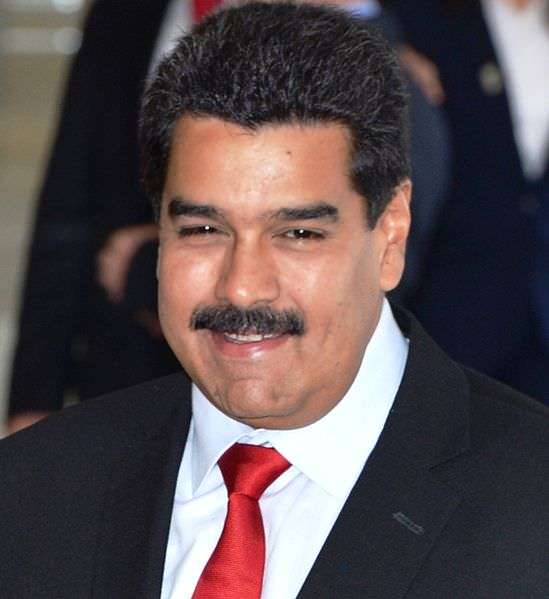Is Venezuela a Dictatorship Yet?
The answer, if you need a hint, is "yes."

The not-so-comic-opera authoritarian regime in Venezuela has long enjoyed support on the political left. Even when the late President Hugo Chávez occupied himself with closing opposition media, controlling private school curriculum, and crushing independent economic effort, progressives lauded him, basically, because he did it all for the right cause. And after all, his authoritarian regime was popular and won democratic-ish reelection. We all agree that it's bad to attempt a coup like his opponents did (oh, wait). So, what's not to like?
Even an "enabling act" allowing the (very sad) clownish Chávez to rule unilaterally was A-OK, wrote The Nation's Mark Weisbrot, because "Chávez has hardly used the enabling legislation at all--only to extract more concessions from foreign oil companies." It's good extortion, not authoritarianism!
But now Chávez's vice president and chosen successor Nicolas Maduro is casting off whatever remaining democratic trappings his country possesses. The "liberal" part of liberal democracy went long ago, since it requires some tolerance for critical voices, independent institutions, and private enterprise. The "democracy" part has staggered along, sort of, if you squint hard. Of course, it's easier to pull off democratic wins when you arrest opposition leaders who show promise of building support and restrict dissenting voices in the media. As Freedom House puts it, "While the act of voting in Venezuela is relatively free and the count is generally considered fair, the political playing field favors government-backed candidates, and the distinction between state institutions and the ruling party is virtually nonexistent." Even so, Chavismo remained popular among the country's poor so long as the regime had oil money with which to buy support and paper over failure.

But that money ran out as oil prices dropped and Venezuelan officials drove their one-time cash cow into ruin.
So even illiberal democracy has become a tough sell in Venezuela, since the people who once supported the authoritarian regime (that did it all for the right cause) are growing unlikely to vote in ways that further the regime's interests. Hence yet another enabling act handed to President Nicolas Maduro by his allies in the National Assembly. It allows him to rule by decree for the rest of the year.
What do you call a government that allows one person to rule according to unilateral whim? I guess we'll find out. Again.


Show Comments (291)